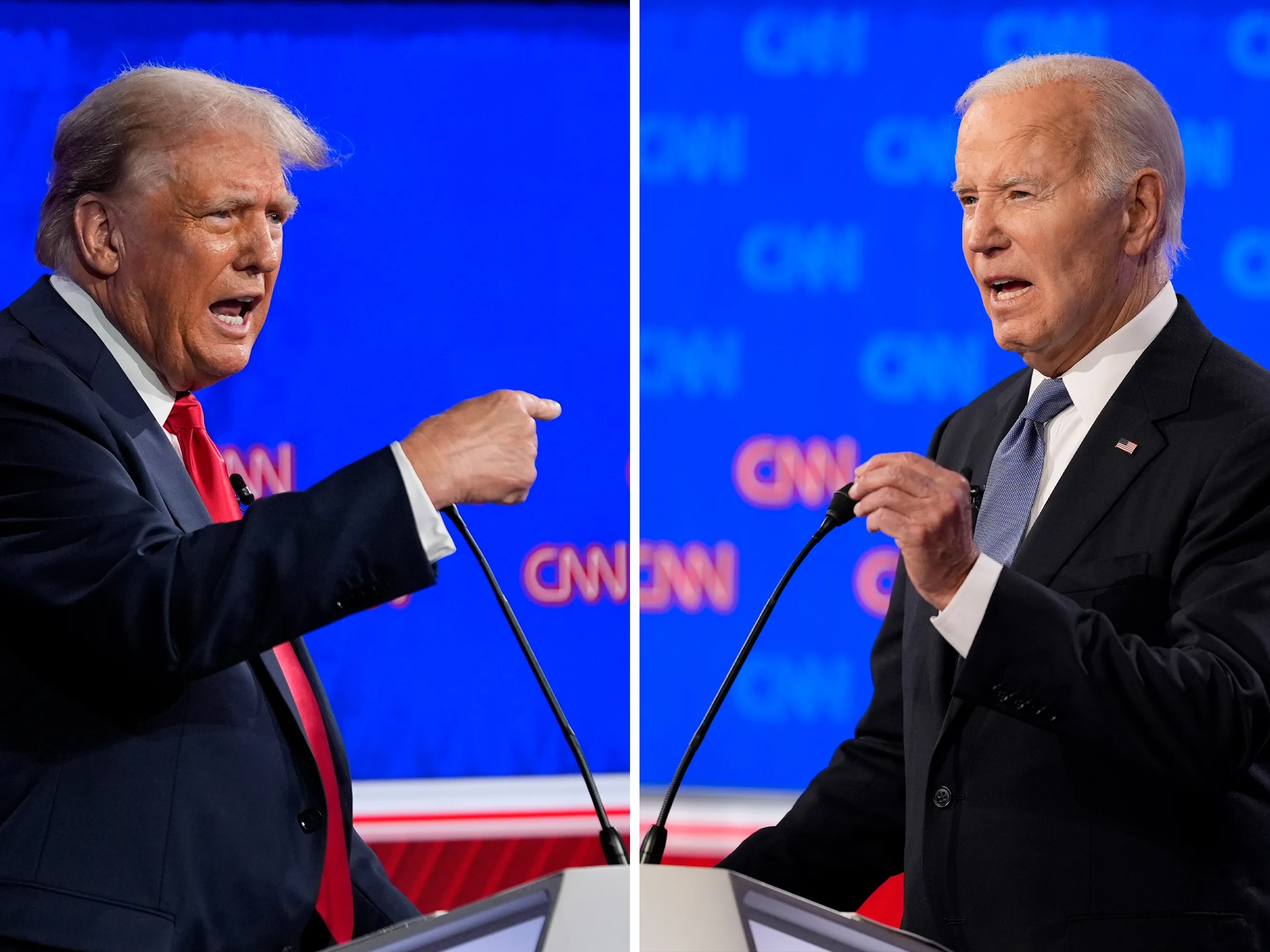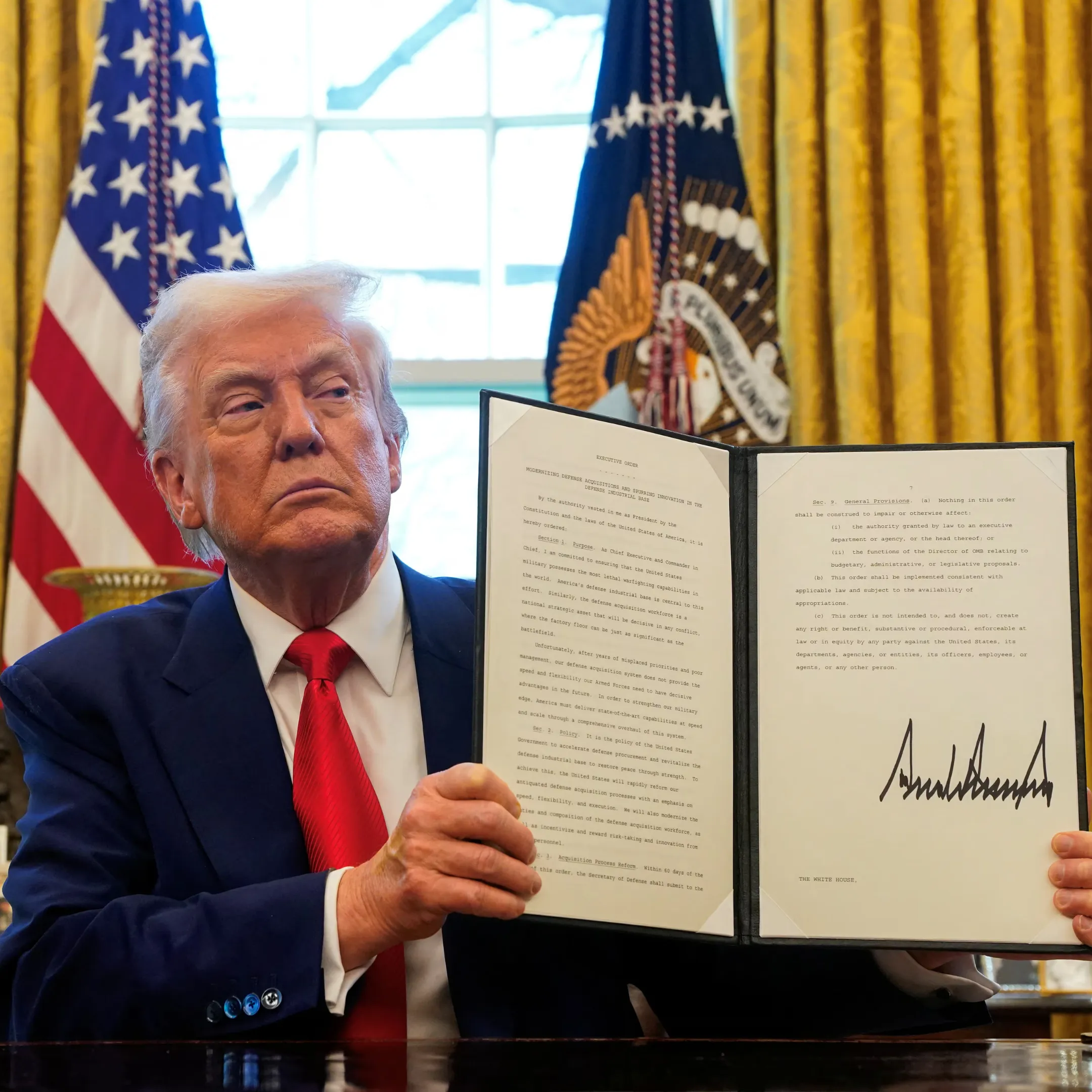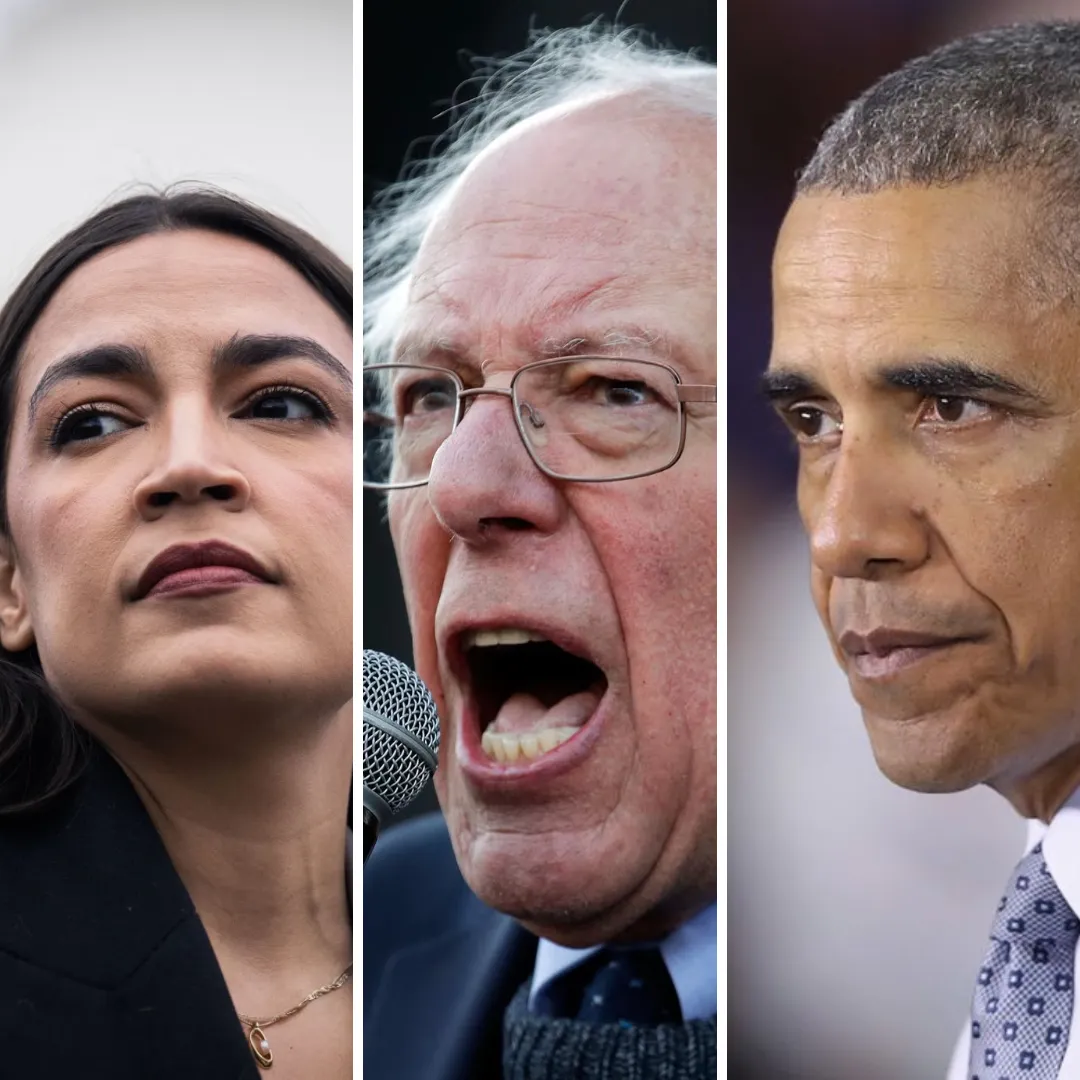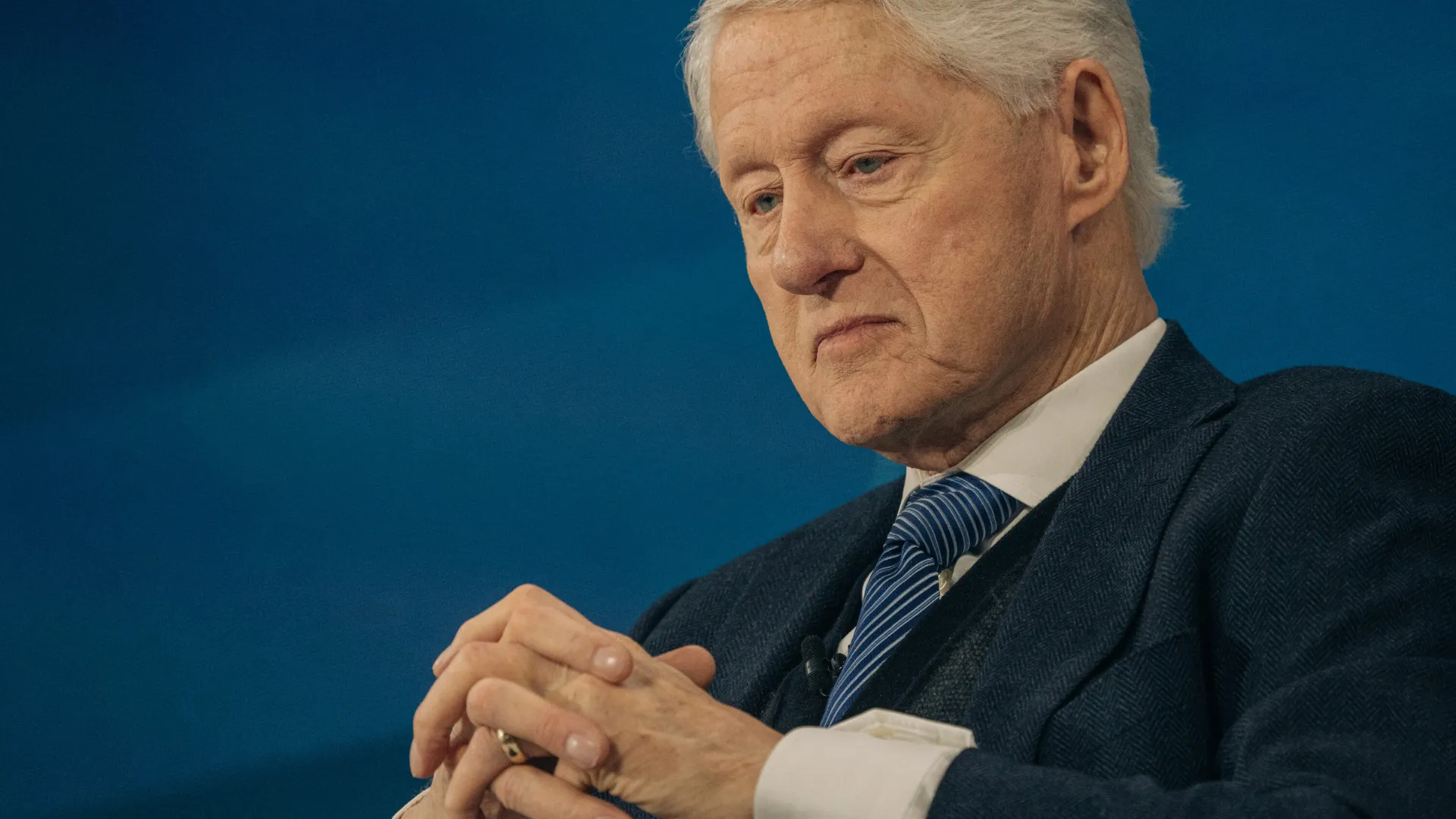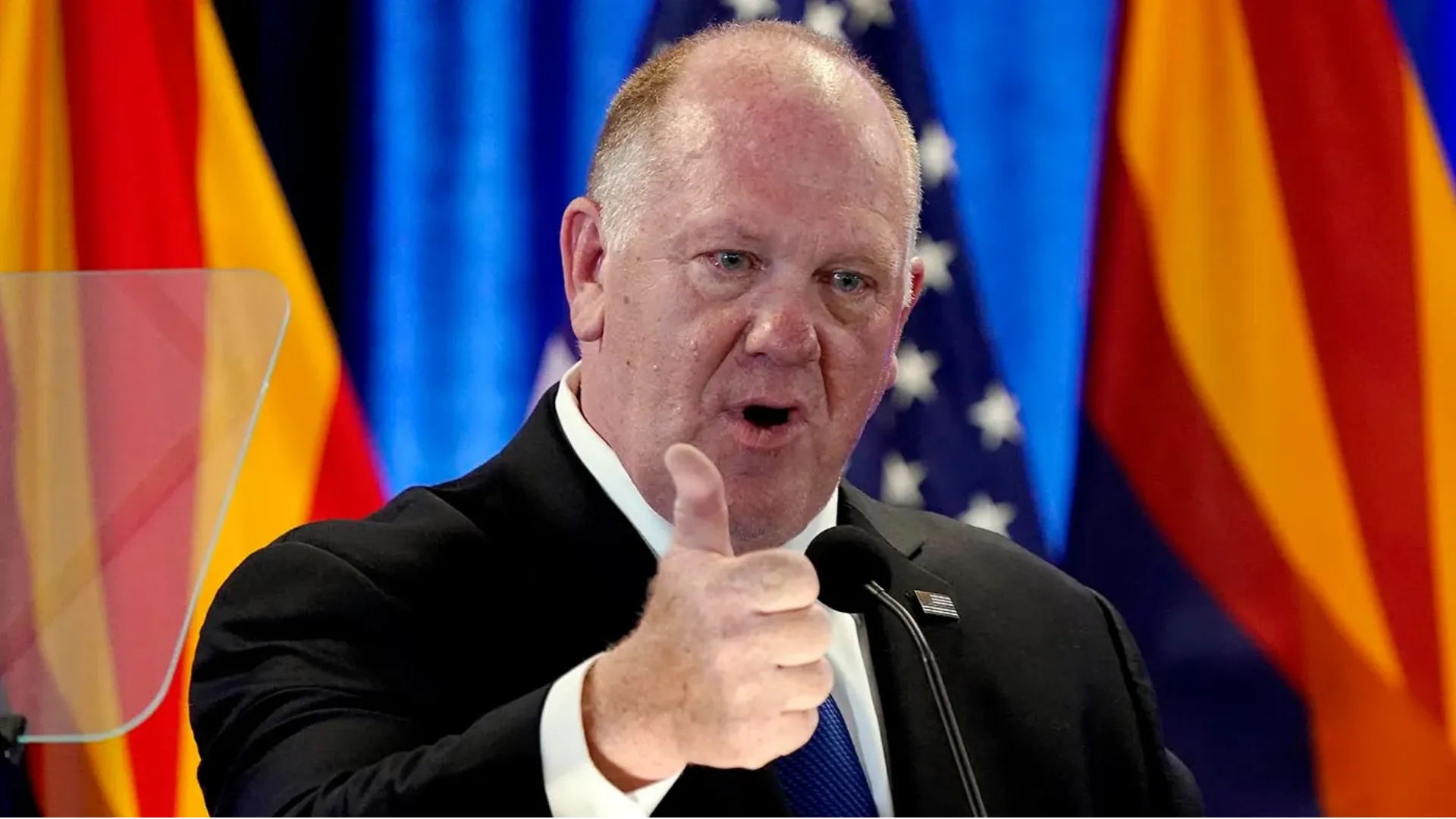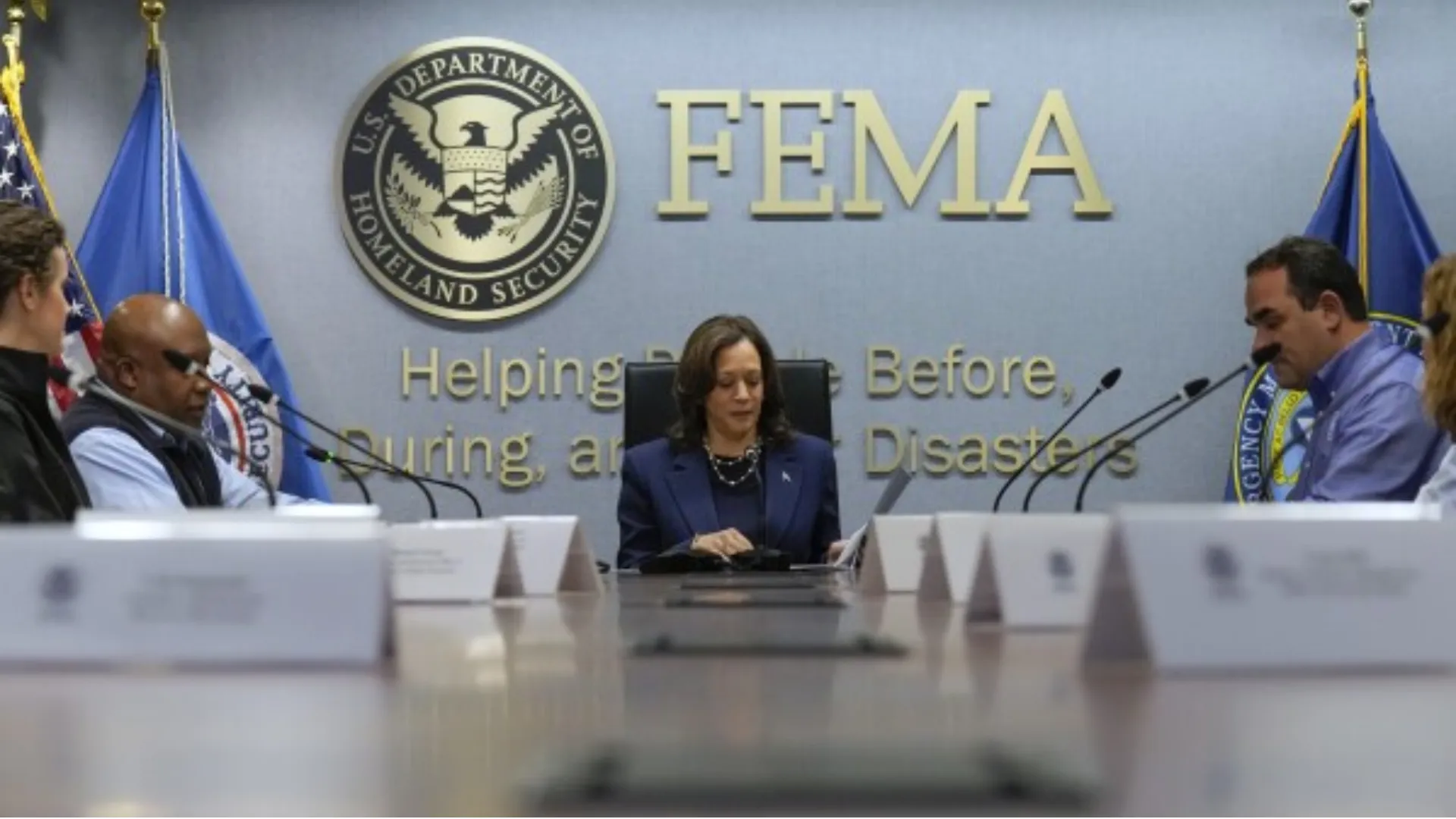Trump Faces Mounting Blame for Economic Woes as Voter Sentiment Shifts

President Donald Trump has long presented himself as a master of the American economy, branding himself a dealmaker, builder, and fixer of financial systems plagued by bureaucracy and bad trade deals.
But as inflation persists, tariffs rattle markets, and consumer costs rise, a growing number of Americans are shifting their blame for the state of the economy from former President Joe Biden to the man currently in the Oval Office.
Two major polls released in early April reveal a sharp change in public perception, with more voters now attributing economic instability to Trump’s policies than to those of his predecessor.
For a president who has staked much of his political identity—and re-election hopes—on his ability to deliver economic prosperity, the data is sobering and possibly consequential for the 2026 midterm elections.
A CBS News/YouGov poll conducted from April 8 to 11 found that 54 percent of Americans believe Trump’s policies are primarily responsible for the current economic situation, compared to only 21 percent who blame Biden. Twenty percent said both are equally responsible, and 5 percent said neither.
This marks a significant shift from just a month earlier, when a March CBS News poll showed 38 percent blaming Biden and 34 percent blaming Trump.
Similarly, a YouGov and Economist poll conducted from April 5 to 8 found that 50 percent of respondents blamed Trump for the state of the economy, compared to 32 percent who blamed Biden.
The same pollster found in mid-March that only 44 percent blamed Trump and 34 percent blamed Biden, signaling a clear movement of public sentiment toward holding the current president accountable.
The shift is more than just a statistical blip. It represents a potential vulnerability for Trump, who has built his political brand on claims of economic strength, promising to bring back manufacturing jobs, tame inflation, and use tariffs to protect American industry.
Now, with the economy facing inflationary pressure and the stock market reeling from Trump’s latest moves on trade, voters appear to be reassessing those promises—and where to lay blame when their groceries, rent, and goods cost more.
The most immediate factor driving the change in voter sentiment is Trump’s controversial tariff strategy. On April 2, during what the White House branded as “Liberation Day,” Trump rolled out sweeping new tariffs targeting dozens of countries, including a massive 145 percent levy on imports from China.
Aimed at realigning global trade and “punishing” what the administration called “unfair trade practices,” the tariffs were touted by Trump as a bold move to restore economic independence.
Initially, markets reacted with panic. The Dow Jones Industrial Average fell 9 percent between April 2 and April 4, signaling investor unease about the consequences of a full-scale trade war.
Although the markets recovered slightly after Trump announced a 90-day pause on most tariffs—excluding those against China—the broader impact on consumer prices and investor confidence is still playing out.
Supporters of the tariff plan argue that they are necessary to protect American jobs and prevent economic dependency on China. Labor unions such as the Teamsters have cautiously supported some of the measures, with Kara Deniz, assistant director of communications, previously stating that the tariffs could bring back “good, union manufacturing jobs.”
But many economists remain skeptical. They warn that tariffs, which are essentially taxes on imported goods, tend to drive up prices for consumers and disrupt supply chains, particularly when applied as broadly and aggressively as Trump’s.
Meena Bose, executive dean at Hofstra University’s School of Government and Public Policy, told Newsweek that Trump’s policy shifts "raise many questions for voters about short-term and long-term consequences" and that economic confidence will largely depend on how his administration addresses those concerns.
The changing public sentiment toward Trump and the economy is rooted in a simple political reality: Americans tend to hold the sitting president responsible for the state of the economy.
While Trump spent much of his 2024 campaign blaming Biden for inflation, high interest rates, and a sluggish recovery from the COVID-19 pandemic, he now finds himself on the other side of that political equation.
CNN data analyst Harry Enten summed it up: “Donald Trump wants to say, ‘Don’t blame me if you’re upset with the state of the economy, blame the other guy.’ I don’t think Americans are buying what he’s selling, at least at this particular point anymore.”
Indeed, it’s becoming increasingly difficult for Trump to pass the buck. He is now more than a year into his second term, and voters expect results.
When inflation continues to squeeze middle-class families, when rent prices remain high, and when a gallon of milk costs more than it did during the previous administration, the responsibility falls on the person occupying the White House.
Trump’s recent tariff policy only exacerbates the issue. While his administration insists that the moves are part of a long-term economic vision, the short-term impact has been steep. Basic goods imported from China—from electronics to clothing to household necessities—have already seen price hikes.
And with China remaining the exception to Trump’s 90-day tariff pause, economists warn that the pain may deepen before any gains are realized.
Trump’s polling problem on the economy is arriving at a critical juncture. The 2026 midterms are fast approaching, and control of both the House and Senate is up for grabs. Republicans are already navigating internal divisions, particularly as they try to defend sweeping spending cuts to programs like Medicaid in the face of Democratic opposition.
For Democrats, the shift in public perception about the economy represents a rare opening. For much of the last few years, they have struggled to make an effective case on the economy, hampered by inflation under Biden and the enduring perception among many voters that the economy wasn’t working for them.

But now, with Trump’s own economic decisions under scrutiny and his administration taking bold, controversial steps on trade, Democrats are hoping to make the economy their issue again.
Progressive Democrats, in particular, are seizing the moment. Senator Bernie Sanders recently resumed his “Fight Oligarchy” tour, framing Trump’s economic policies as benefiting billionaires at the expense of working families.
Representative Alexandria Ocasio-Cortez has similarly taken aim at Trump’s tariffs, calling them a "tax on the middle class" disguised as nationalist posturing.
The question heading into the midterms is whether Democrats can sustain and capitalize on this shift in economic blame. Will they be able to connect Trump’s policies to the day-to-day struggles of average Americans? And will voters remember these frustrations when they head to the polls?
If the current polling trends continue, Democrats could find themselves in a stronger position than previously expected.
One of the challenges Trump faces in defending his economic record is the increasingly skeptical tone in media coverage. While conservative outlets like Fox News and Newsmax have continued to promote Trump’s trade policies as tough and necessary, more mainstream outlets have reported on the unintended consequences, including market instability and rising costs for consumers.
Moreover, social media platforms have seen growing criticism of Trump’s “Liberation Day” tariff strategy, with users mocking the term and noting that the immediate result was a loss of billions in stock value and price hikes at the checkout counter.
Adding to Trump’s woes are his own statements. His April 2 post urging Americans to see the market drop as a “great time to buy” raised eyebrows, especially when it was followed just hours later by the 90-day tariff pause.
Several Democrats, including Senators Elizabeth Warren and Cory Booker, have called for an investigation into whether any insiders benefited from early knowledge of the tariff reversal.
If that investigation gains traction, it could compound Trump’s political problems by adding a layer of potential scandal to already deteriorating public perceptions of his economic leadership.
The full impact of Trump’s tariffs may not be felt for weeks or months, but the political consequences are already taking shape. While the markets may recover, voter frustration over persistent inflation, high housing costs, and economic uncertainty remains.
And with Trump now fully in control of both economic policy and political messaging, there are fewer places to deflect blame. That, perhaps more than anything, is what makes these polling shifts significant.
Presidents live or die politically by the state of the economy. Trump knew that when he ran in 2024, and he staked his comeback on the promise of economic restoration. But if voters continue to lose faith in his ability to deliver, that comeback could unravel just as quickly.
As one user put it in response to the new poll results, “You can’t keep blaming the last guy when you’ve been in the driver’s seat for over a year. At some point, you own it.”
For now, Trump owns it—and the American people are watching.
Related articles
The Latest
New Jersey Democrats gear up for a close race in the governor's primary
With just over a month remaining before the Democratic primary for New Jersey’s governor race, the competition has grown increasingly fierce, with six major candidates vying for the opportunity to succeed term-limited Governor Phil Murphy. Among them, Representative Mikie Sherrill ...
Trump celebrates 100 days in office by playing the blame game with Biden
As President Trump marked his 100th day in office, he made it a point to reflect on his progress while simultaneously continuing to lay much of the blame for economic turmoil on his predecessor, President Joe Biden. Throughout the week, ...
Trump's biggest mistakes in the first 100 days
As President Donald Trump reaches his 100th day back in office, he’s taking time to celebrate his achievements at a rally in Michigan. While a moment of reflection and celebration may seem fitting, the first 100 days of Trump’s return to ...
Obama Sanders and Carson Among Most Liked Political Figures in New Surveys
As political divisions continue to deepen across the country, a new set of public opinion surveys shows that some of the most prominent names in American politics continue to maintain significant favorability among the public. Former President Barack Obama, Senator Bernie ...
Azealia Banks Turns on Trump and Blasts Second Term as Total Disaster
Azealia Banks, the often outspoken and frequently controversial rapper and social media figure, has turned on President Donald Trump, calling his current administration "an absolute disaster." Her comments mark a significant reversal from her previous support for Trump, which she maintained ...



 Trump's Secret Military Plans Leaked Through a Mistaken Text Exposing National Security
Trump's Secret Military Plans Leaked Through a Mistaken Text Exposing National Security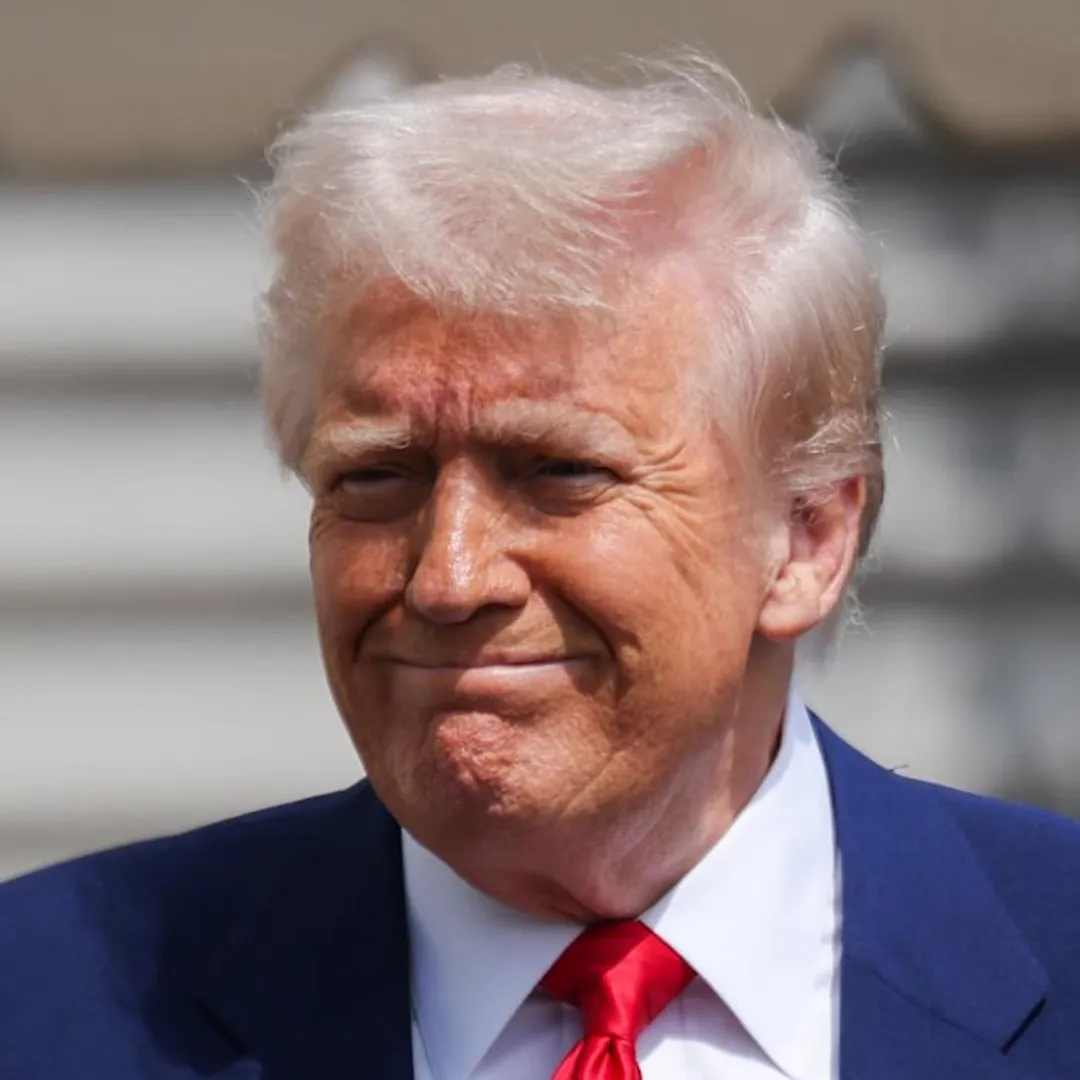 Trump’s Military Parade Returns—On His Birthday—at a Multimillion-Dollar Cost to Taxpayers
Trump’s Military Parade Returns—On His Birthday—at a Multimillion-Dollar Cost to Taxpayers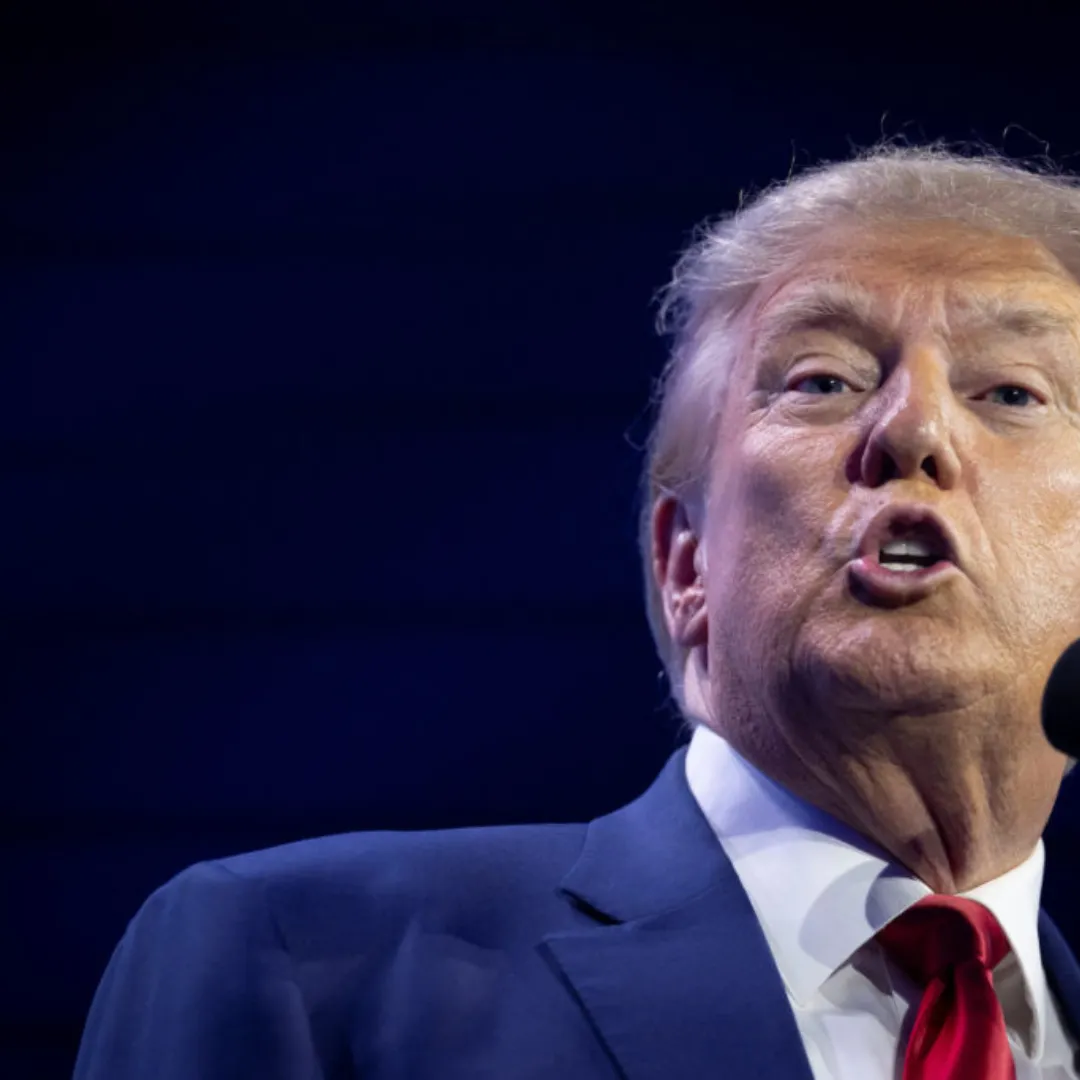 “Praise and Price Tags”: Alabama Cheers Trump, But Quiet Doubts Linger Beneath the Applause
“Praise and Price Tags”: Alabama Cheers Trump, But Quiet Doubts Linger Beneath the Applause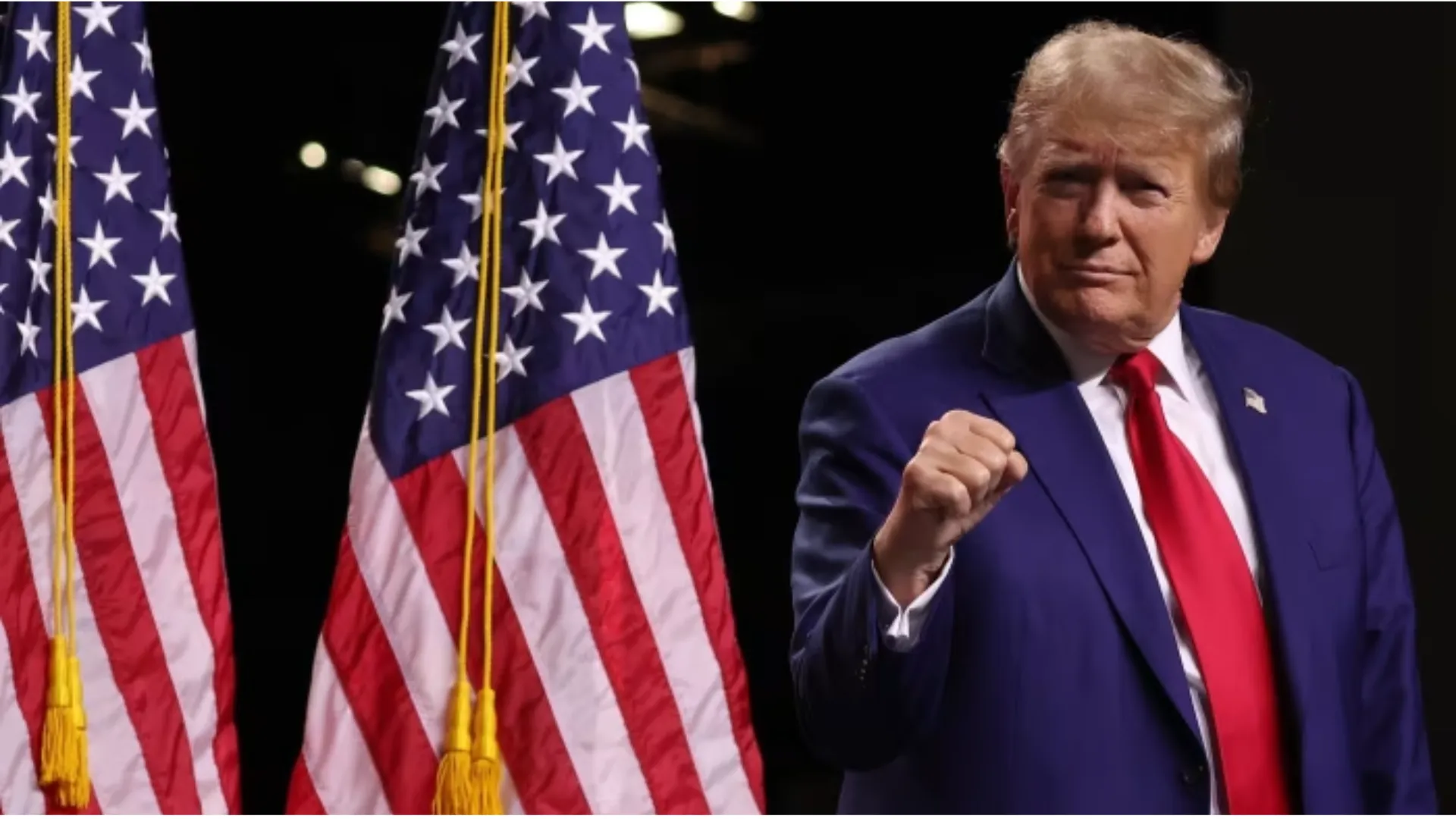 The Trump Effect: Addressing Terrorism and Restoring Security in America
The Trump Effect: Addressing Terrorism and Restoring Security in America-1746292232-q80.webp)
